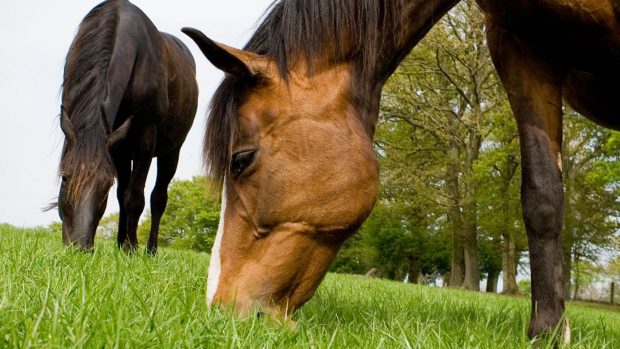There may come a time when you need to make alternative arrangements for your horse, but the thought of loaning him to a stranger or selling him may not appeal. Loaning to a college or university could be the ideal alternative.
A number of equine institutions throughout the country take horses on loan, including Hartpury College and Warwickshire College, so how does the process work?
“Hartpury College takes in 55 loan horses at the beginning of each academic year,” explains Tom Hallam, head of equine. “They are used for student teaching sessions for both further and higher education students.
“The day-to-day care of the horse — including a tailored exercise plan, diet, bedding and farriery — are all provided by highly qualified staff, and the horses are treated as individuals, allowing an optimum balance between work and relaxation.”
Similarly, Warwickshire College takes on loan horses, to be ridden by students enrolled on relevant courses.
“While at college, the horse is under our custody and control,” says Fran Penn, horse unit manager.
“The horses are always supervised by experienced and qualified staff, and are available for owners during the college holidays, most weekends and other times by negotiation.”
Contracts vary, but it is generally expected that the horse will remain at the college for one academic year.
They sometimes go home during the student holidays, and there is usually a notice period of four weeks for both parties to terminate the contract.
A detailed loan agreement is drafted, to be signed by all parties.
How much do owners pay?
The financial arrangements differ between colleges, but owners should expect to pay a small contribution to their horse’s care over the academic year.
“All loan horse owners are required to pay a £100 deposit at the beginning of the period, which covers one academic year,” Tom says. “This covers the costs of worming and vaccinations, but owners are responsible for all veterinary costs while the horse is at college.
“Hartpury will pay all shoeing fees while the horse is here; however, if the horse requires any remedial shoeing, the owner will cover this additional cost.”
At Warwickshire College, hard feed, forage and bedding costs are covered, but there is a charge towards laundry, saddle fitting, wormers and vaccinations.
“The owner pays for any regular medications and supplements, and we do not fund major vet costs such as colic surgery or lameness investigations,” says Fran.
Is your horse suitable?
Horses loaned to Hartpury College range from those used in Riding for the Disabled sessions up to ex-advanced eventers. Each horse is assessed on an individual basis.
“Horses are graded depending on their level of training and education,” Tom Hallam says. “We need a variety of horses as we run a range of courses, and host British Horse Society training courses and exams.
“Hartpury loan horses come in all shapes and sizes, with varying experience, but we usually ask that they are at least five years old, 15hh or above, and are established on the flat and over fences.
“We have a four-week assessment period to ensure that the horse is happy at the college
and suitable for students to ride.”
This article was first published in Horse & Hound magazine (7 August 2014)
Are you selling your horse? Take a look at this expert advice



